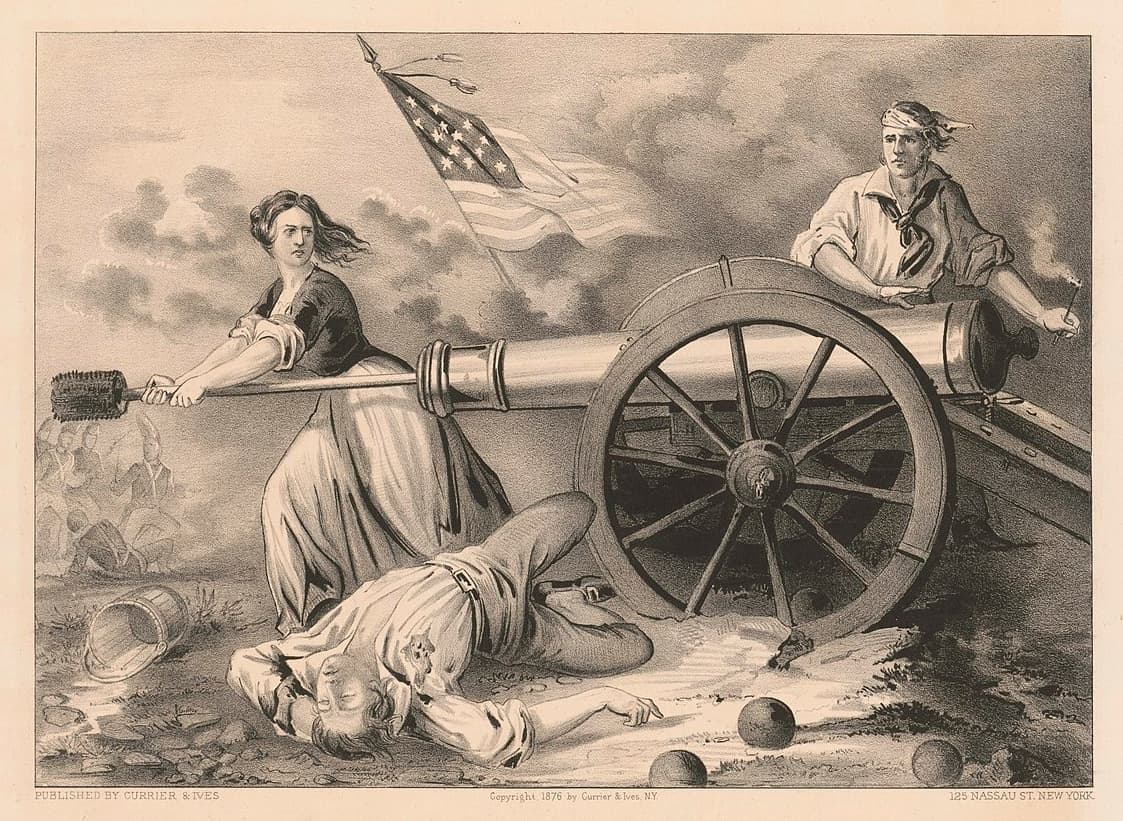Women in History: A New Vein in the Revolutionary War Era
That Cynthia Kierner provides a palpable sense of the world Jane Welborn Spurgin inhabited in early America is a triumph, restoring to history a woman otherwise overlooked.

‘The Tory’s Wife: A Woman and Her Family in Revolutionary America’
By Cynthia A. Kierner
University of Virginia Press, 224 pages
‘The Line of Splendor: A Novel of Nathanael Greene and the American Revolution’
By Salina B. Baker
Culver Press, 622 pages
Jane Welborn Spurgin is the Tory wife who welcomed a Whig general, Nathanael Greene, into her North Carolina home after her husband, William, a respected judge before the Revolutionary War, decided to remain loyal to his king and abandoned his home and family to fight against friends of long standing who supported his spouse’s decision to become, as she later affirmed, a citizen of the United States.
Probably all the recorded facts about Jane Spurgin could be listed on a single page. Women in the colonial/revolutionary period had few rights compared to their husbands, and their doings were not usually recorded or commented upon. Jane stood out for her staunch American patriotism. What is known is that after the Revolutionary War, she petitioned three times to have her confiscated property restored, and that she never did recover all that she lost.
Jane is not mentioned in Salina Baker’s novel, but like Cynthia Kierner, Ms. Baker provides a context for understanding how unusual the independent Jane Spurgin was among women of her time who confronted parlous conditions that made Jane’s stubborn singularity all the more amazing.
Jane, the mother of a large family, had to survive not only without her husband but with her society’s assumption that a wife would naturally share, or at least comply with, her husband’s politics. The Spurgins were not gentry, but they were successful farmers and property owners, and all they had was put at risk — as Ms. Baker’s novel shows:
“Partisan warfare stalked the woods frequently, finding its way to the gentrified plantations and towns. They were overwhelmingly poor Scotch-Irish who settled in the backcountry of the Carolinas—often squatters and wanderers, loyal, ruthless, and belligerent—men and women fighting a regional civil war. Many were Patriots, and they had vendettas to settle against the Tories, also called Loyalists.”
Jane could not be a character in Ms. Baker’s novel — unless the novelist decided to make up virtually everything about her. Ms. Kierner cannot tell us if the Spurgin marital breakup was amicable or hostile. Not even Jane’s children later chose to say anything at all about their mother’s part in the Revolution, even though, as Ms. Baker puts it, “men and women” were “fighting a regional civil war.”
That Ms. Kierner nonetheless provides a palpable sense of the world Jane inhabited is a triumph, restoring to history a woman otherwise overlooked. That Jane earned the respect of her community is apparent in the testimony of dozens of men who signed on to her pleas for the restoration of her property. They had no doubt that she had been part of the fight, which meant not only hosting General Greene, but all through the war opening her home to the revolutionaries.
Jane’s evolving independence after the war and into the 1790s is apparent, Ms. Kierner reports, in her subject’s final plea — at once respectful but also demanding and certain of her place in history — though Jane would not have put it that way. Both the state and her own family were content to erase her contributions, but Jane persistently asserted her rightful claims.
Much more is known about Jane’s husband, William, forever loyal to the Crown, who settled in Canada and was rewarded for his service. Unlike Jane, who lived in a state that did not grant divorces to women, William simply moved on, married again without benefit of divorce, and raised a family, some of whom eventually settled in Indiana with apparently no knowledge or no curiosity about what Jane had done to help create the country their father had fought against.
Ms. Kierner does not emphasize the irony of Jane Spurgin’s story: Simply because she was a woman left alone to declare her political convictions, she was thought to have no place in the history of her own family, let alone of her country. Without Ms. Kierner’s intervention, Jane Spurgin would have remained — like so many other women of her generation — known only as “the Tory’s wife.”
Mr. Rollyson is the author of “American Biography” and is at work on “Making the American Presidency: How Biographers Shape History.”

